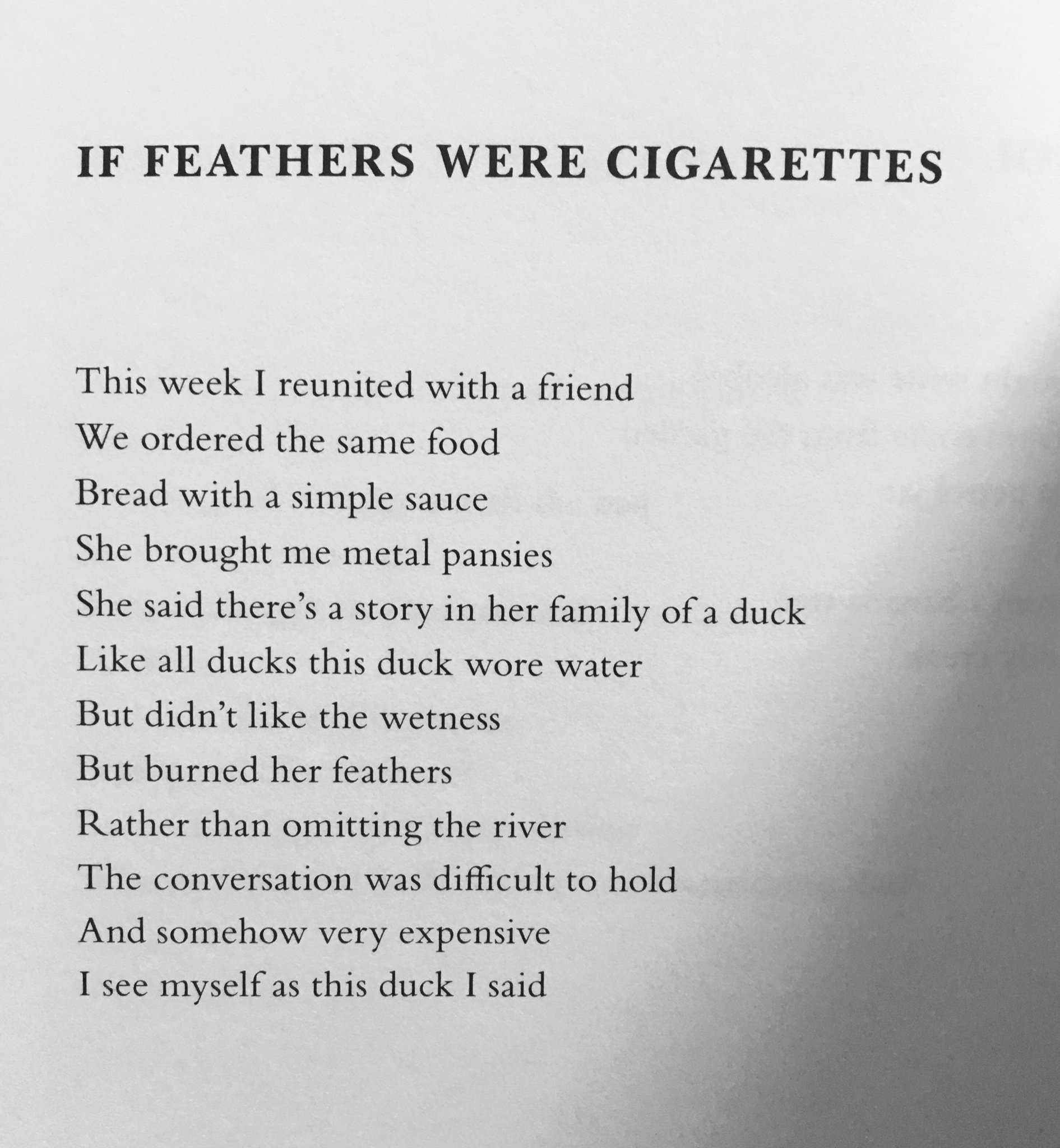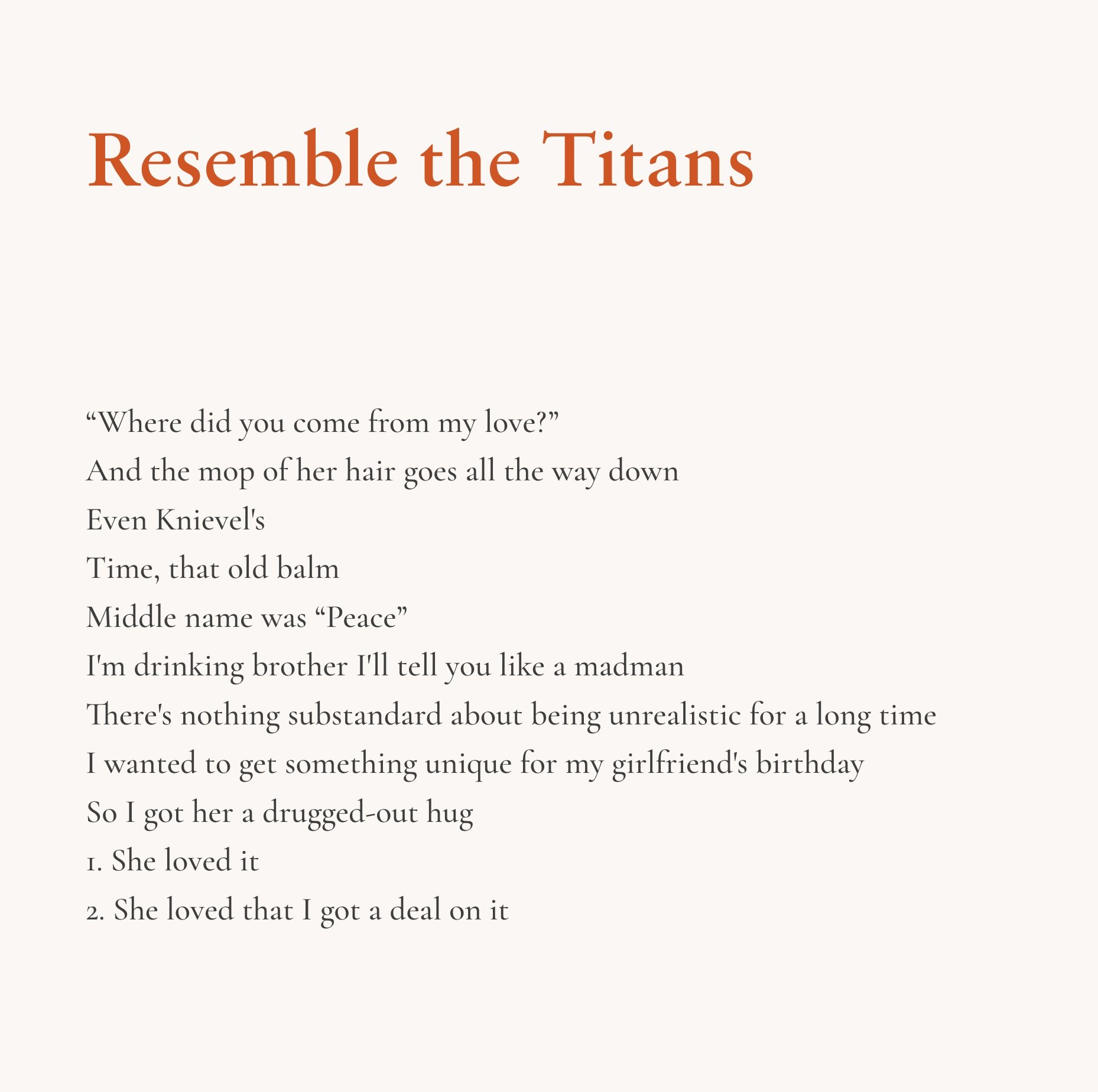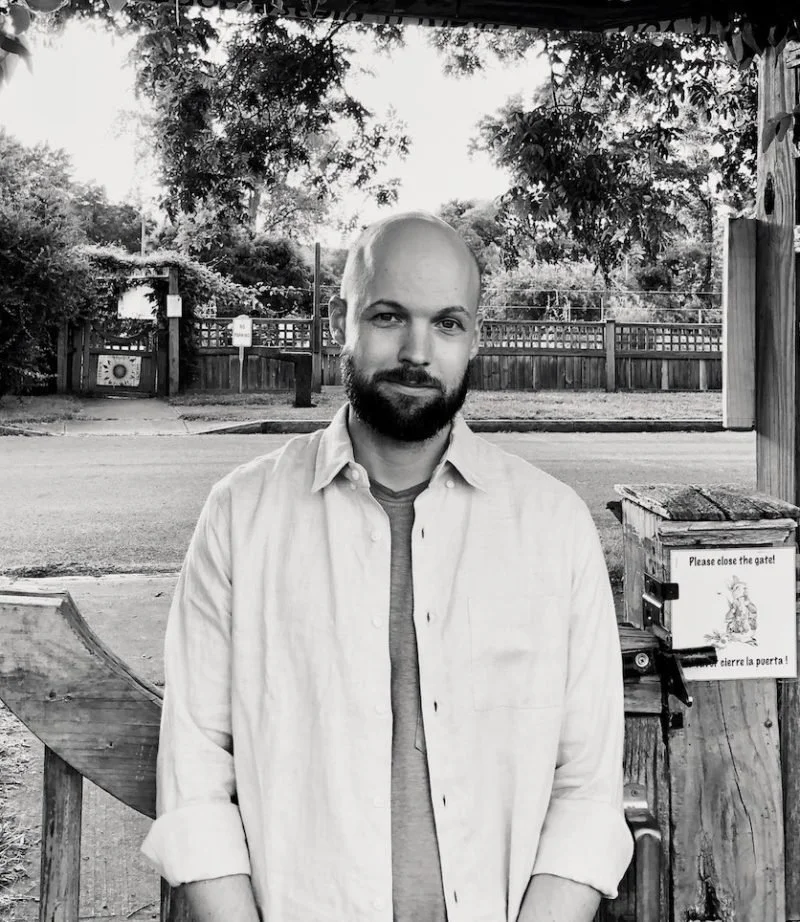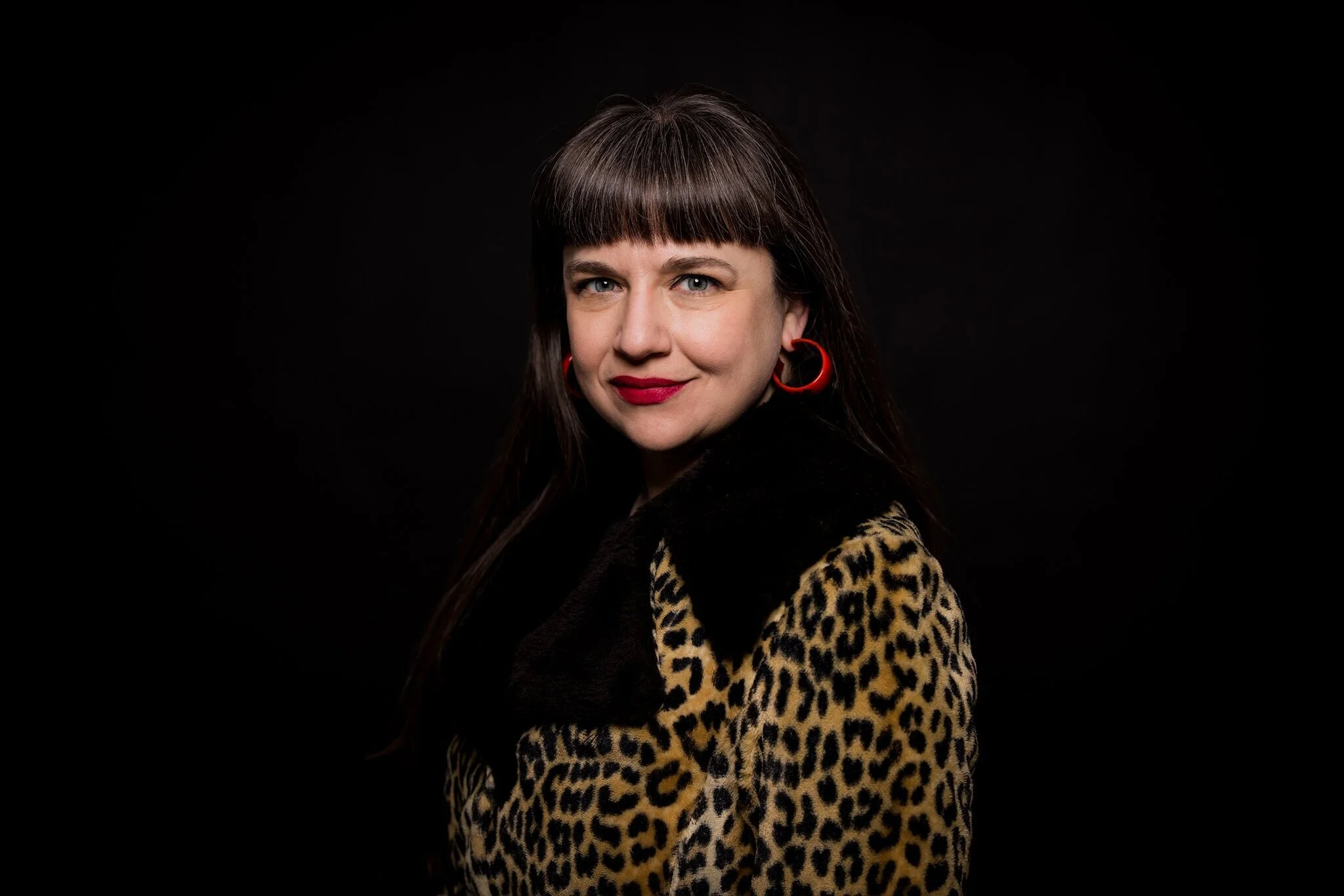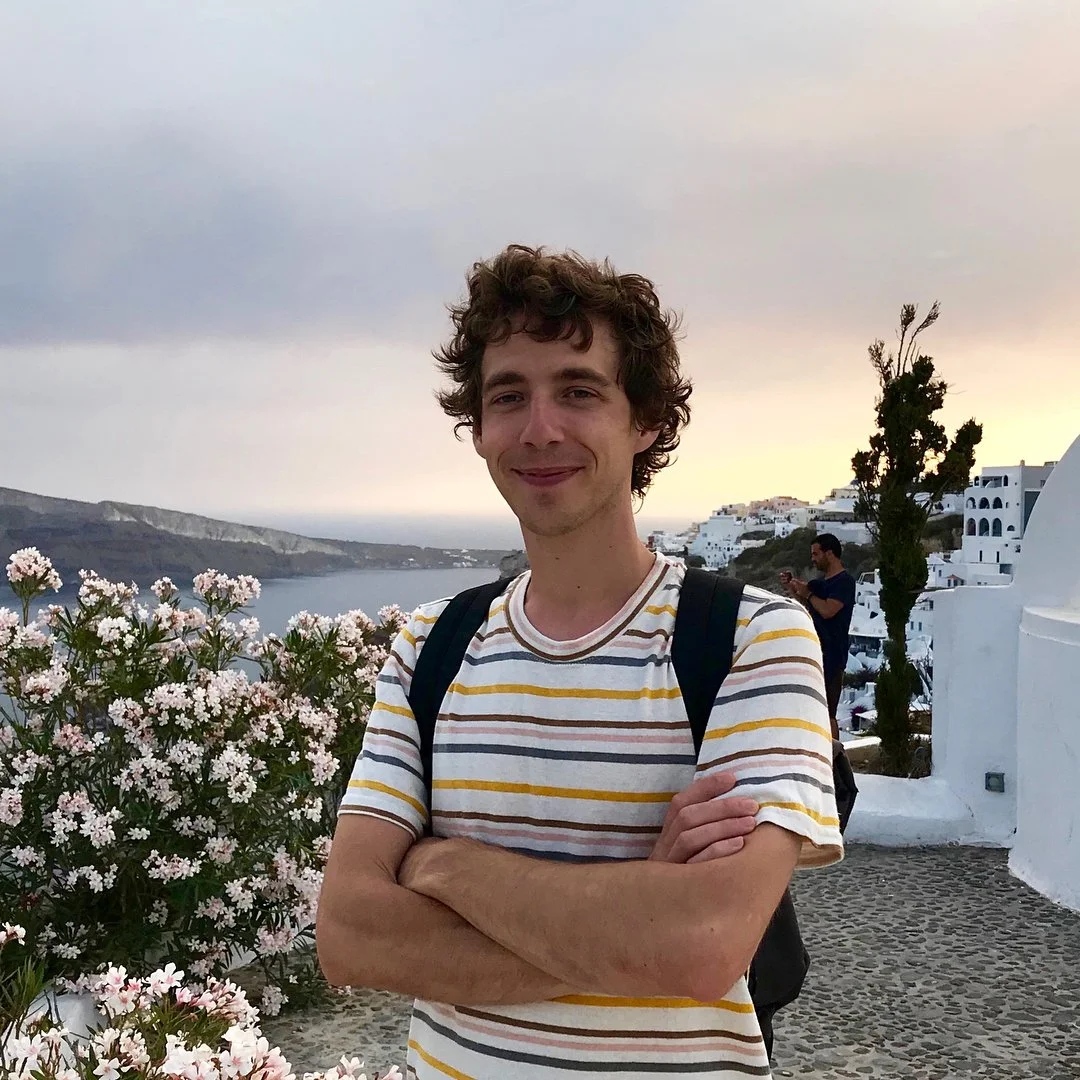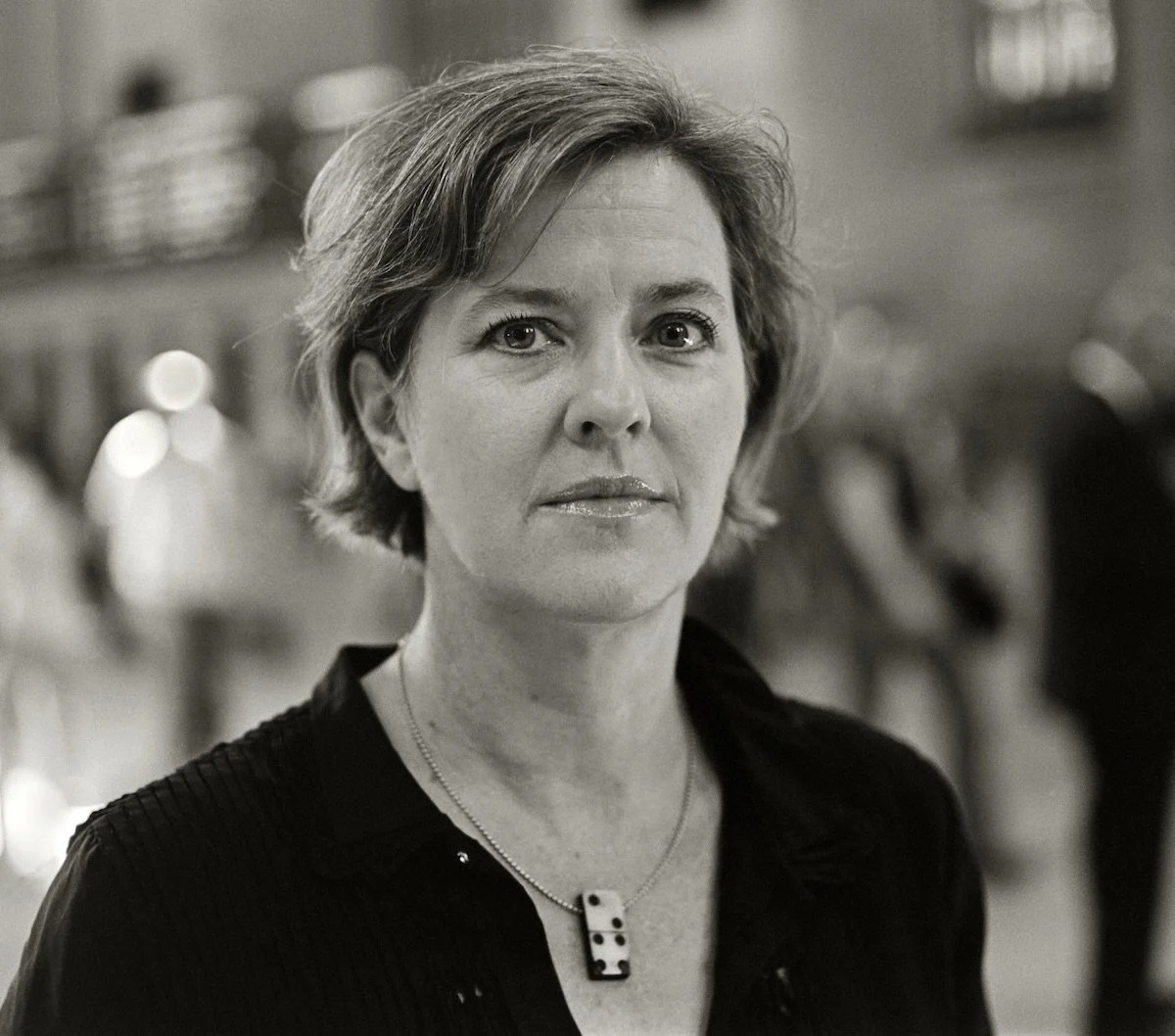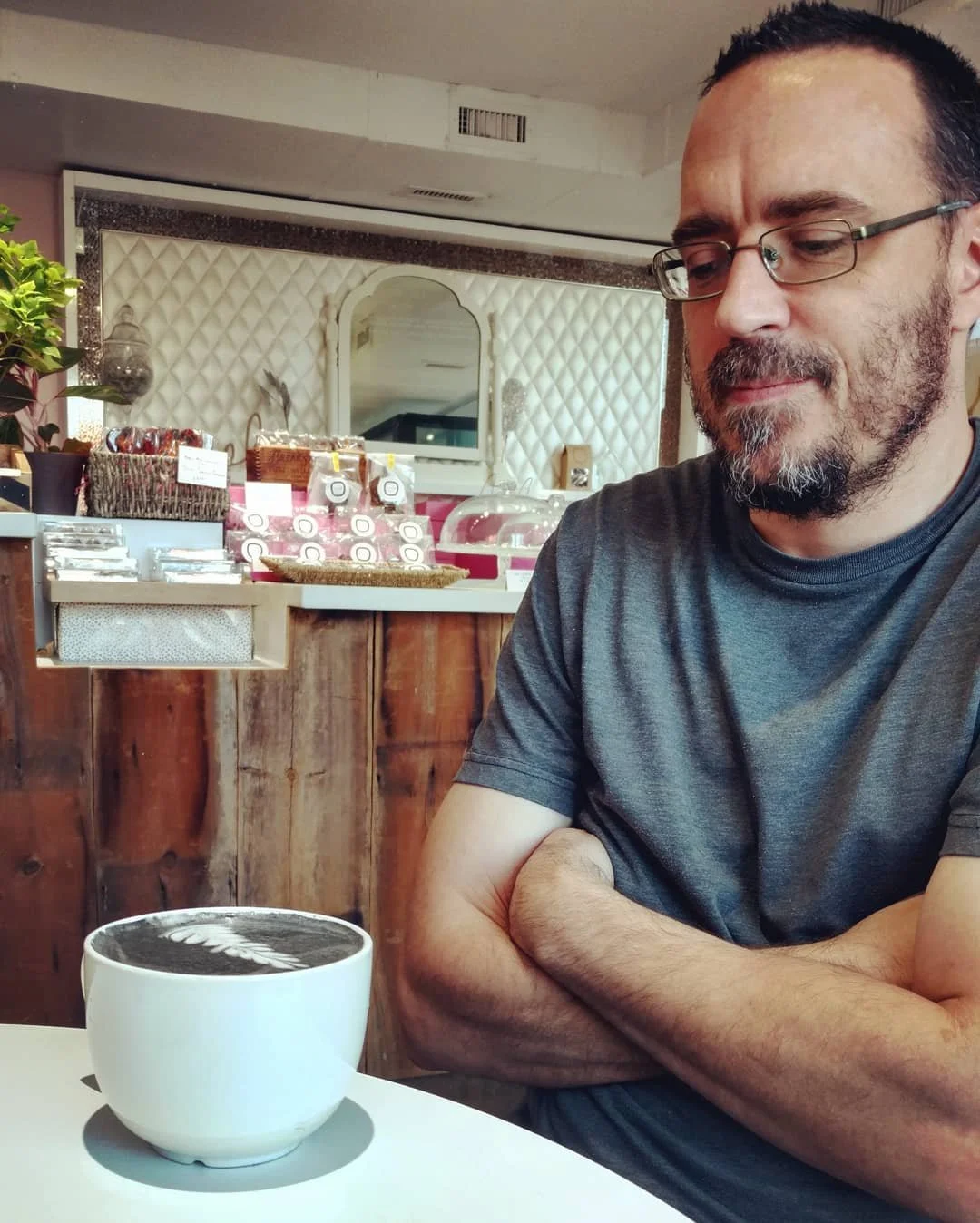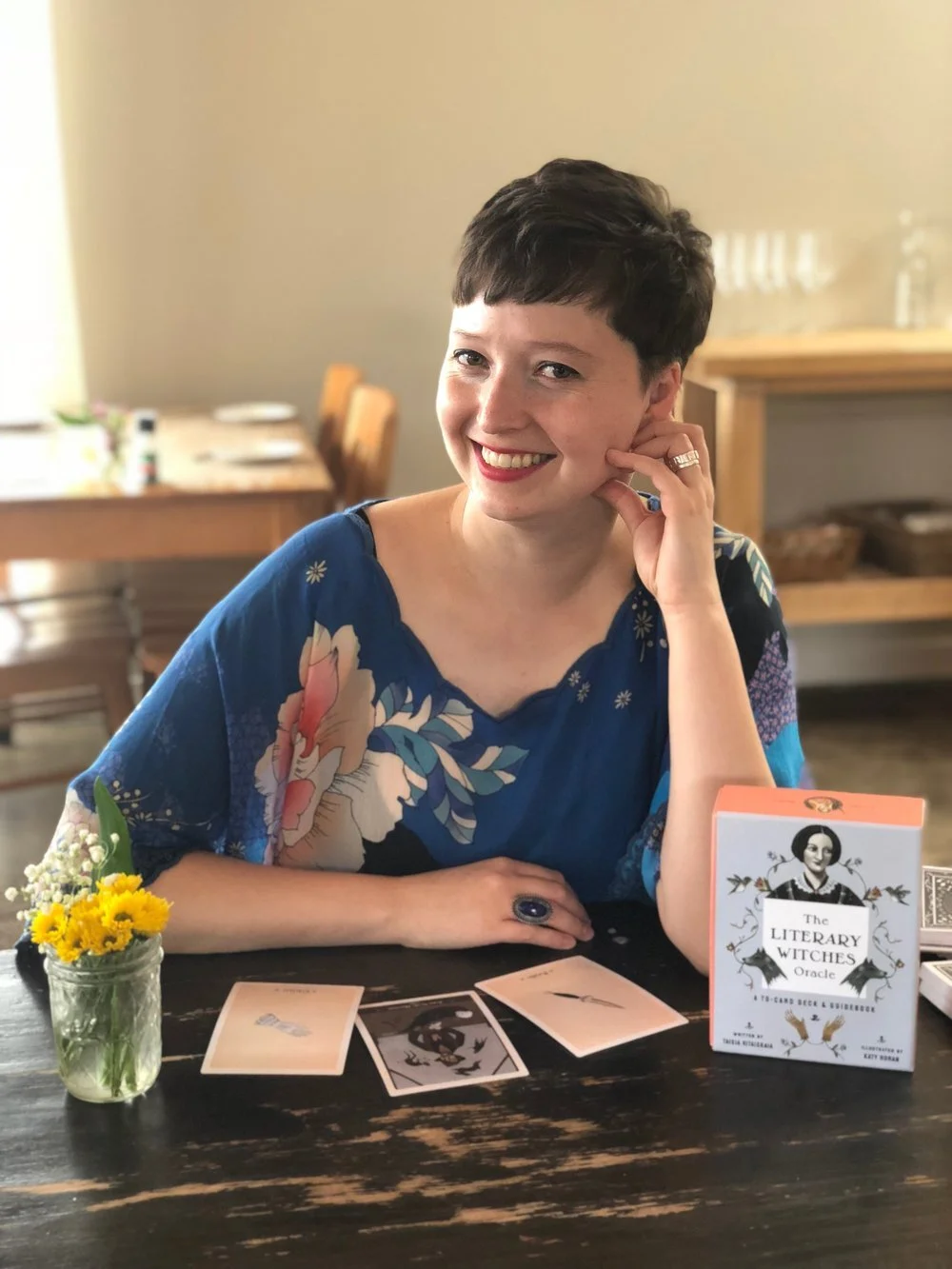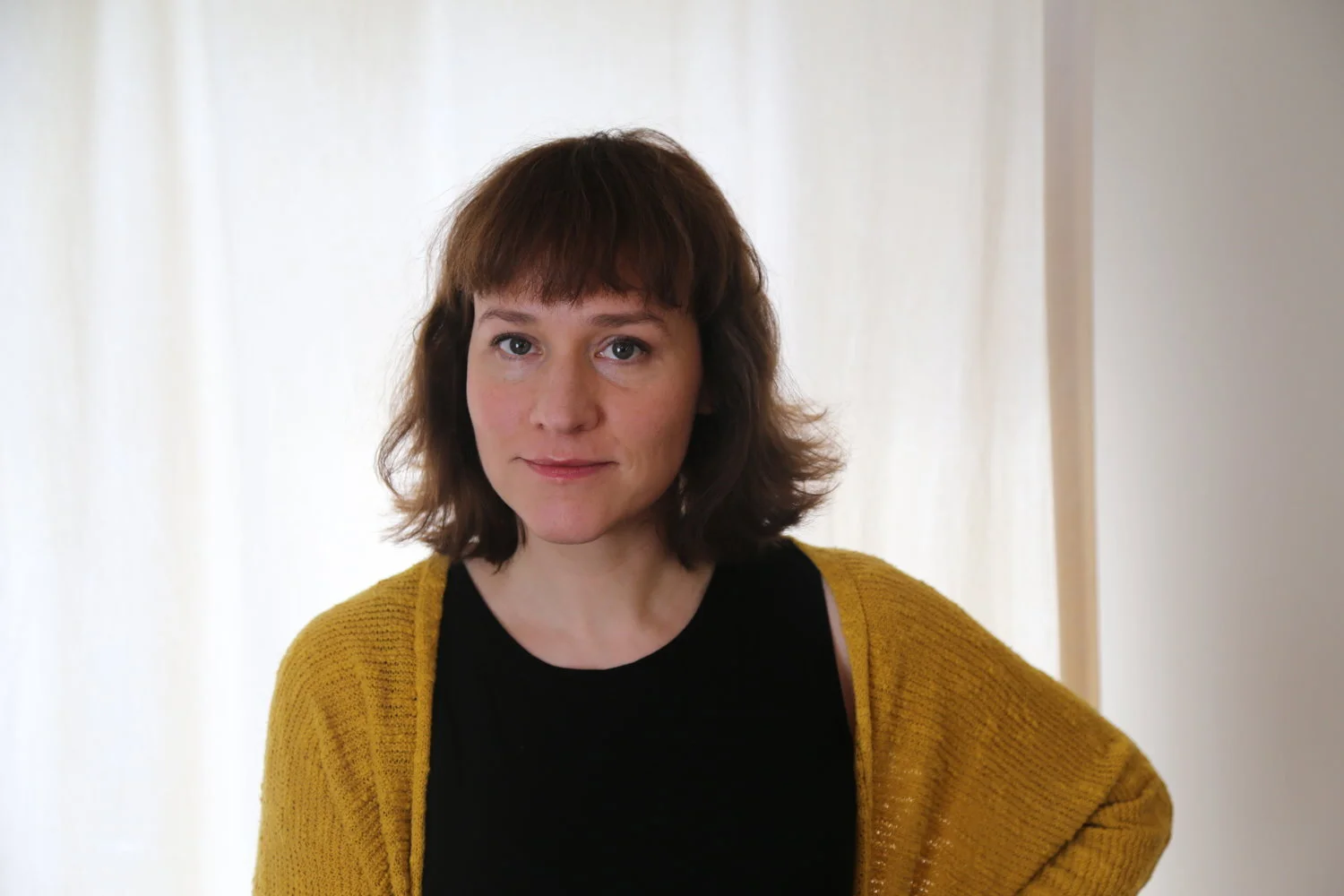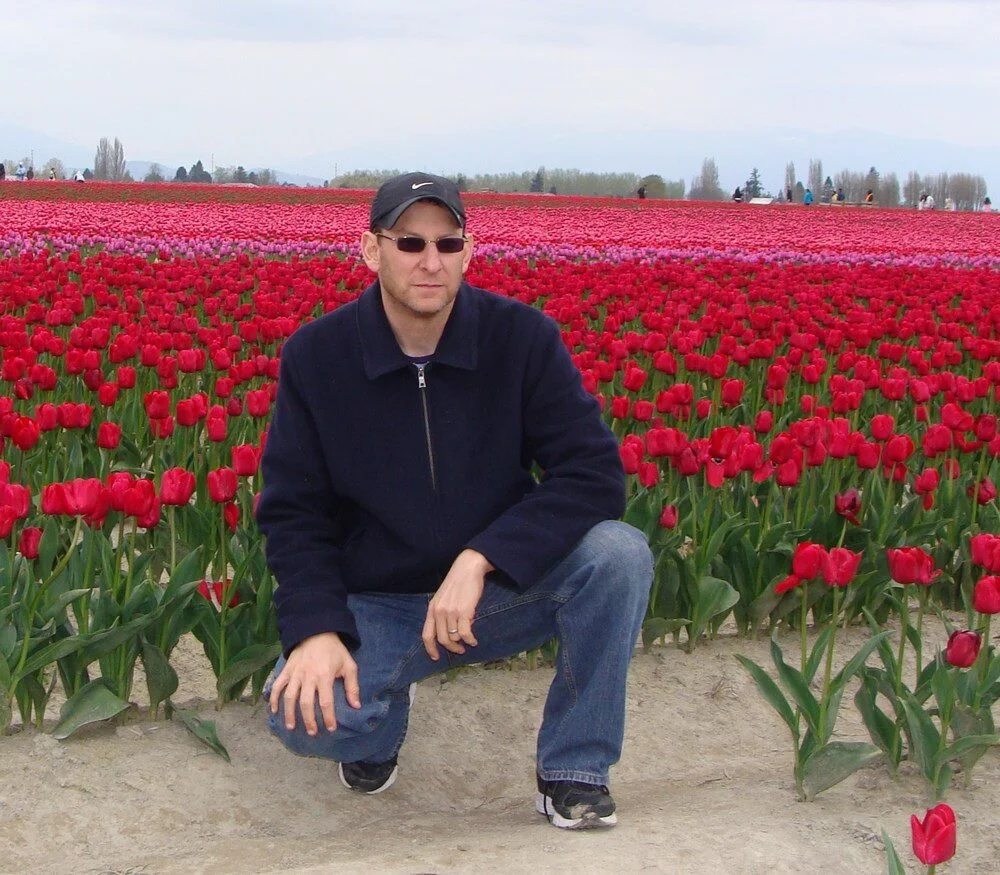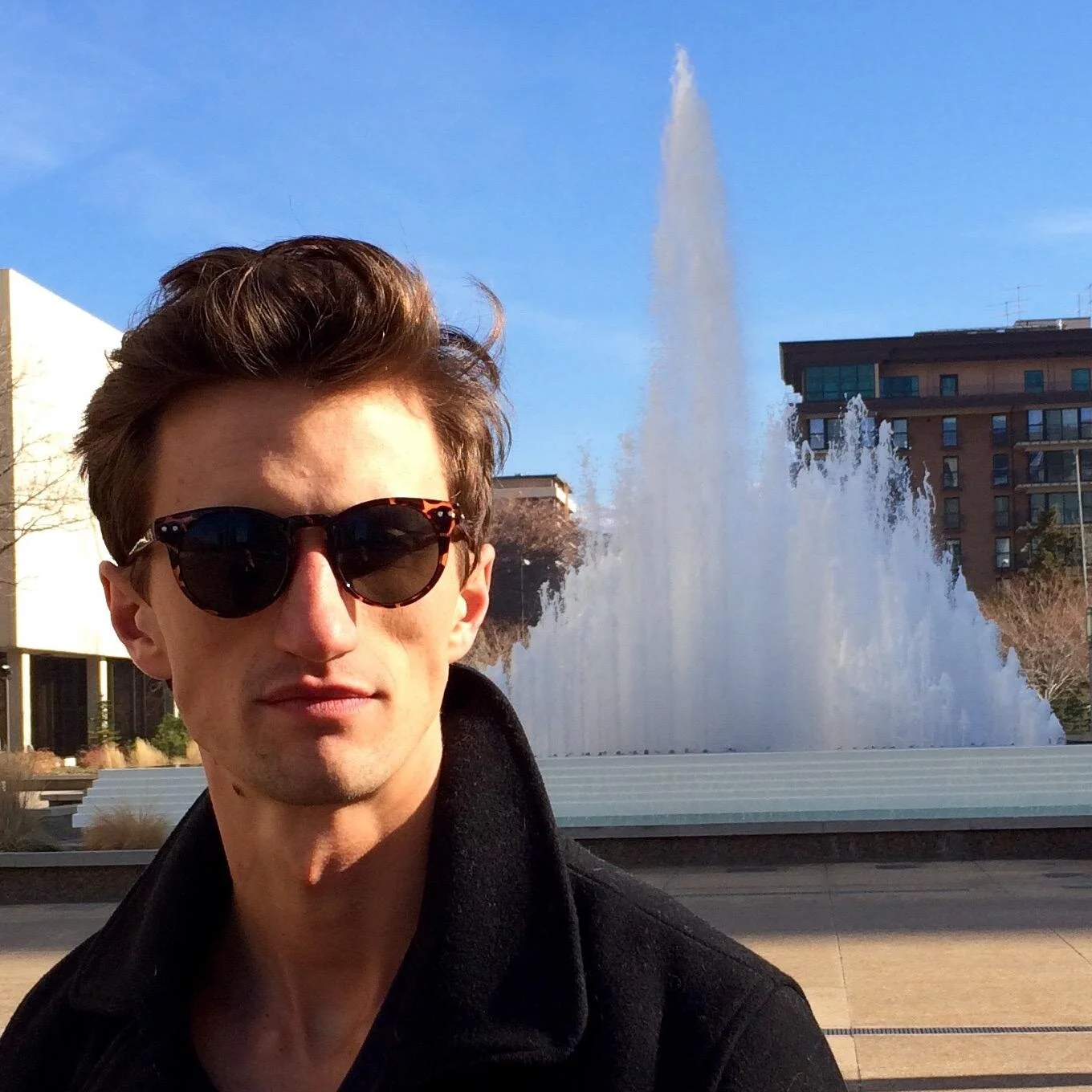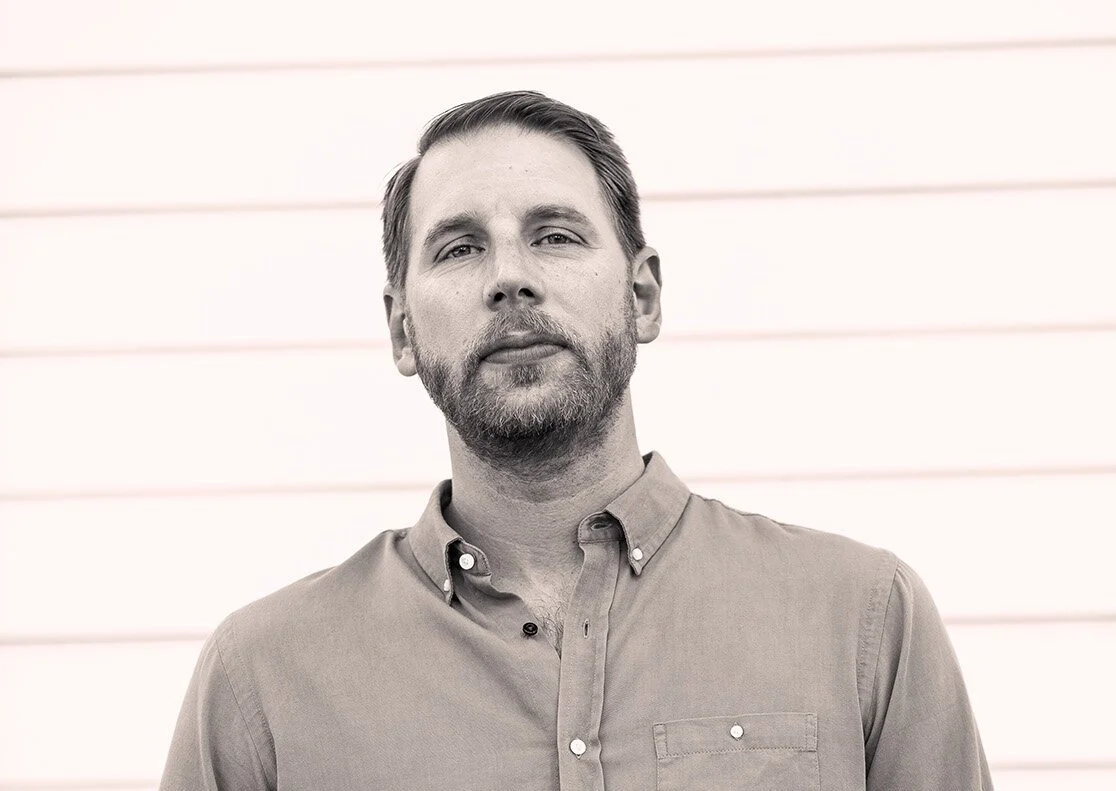This summer, Alan Felsenthal of indie press The Song Cave mailed me an advanced reading copy of Zan de Parry's debut full-length poetry collection, Cold Dogs. A book by an author I was unfamiliar with, it quickly became not only my favorite poetry collection of 2024, but the best ARC I think I’ve ever received. The unique collection is packed with a signature vernacular both matter-of-fact and uncommon. Sparse yet dense. Absurdist yet realistic. Rural and urban at the same damn time. The line between reality and absurdism, dreamspeak and normalcy is a mode Parry handles masterfully. Making bathtub gin with calloused hands. Laughing to keep from weeping, weeping to keep from laughing.
Along with having him in Chicago on November 6 as part of my Neon Night Mic reading series, I was fortunate enough to pick his brain about his debut collection, his past intersections between literature and theatrics, his history of odd-jobs, his DIY press with his brother, and enough media recommendations to overwhelm your local library. Be sure to grab his book, his chapbook, support his press, and scroll down for the full interview, complete with a writing prompt, an office snapshot, screaming buzzards, and more.
As an icebreaker: where are you tuning in from? I know your bio says Southern Illinois but I remember you saying in past correspondence that you were up in Michigan.
It is 5am in Ypsilanti. Cold Dogs was finished and submitted while living in the village of Ohlman, Illinois.
Have you always lived in the Midwest?
I’ve lived in Ypsilanti, Detroit, Ann Arbor, Philadelphia, Austin, Birdsboro (PA), and Ohlman.
Congrats on your debut collection! Can you talk a bit about your book's history and assemblage?
Thanks, Ben. Congratulations on your new book, too.
Between 2013 and 2024 I worked as a farmer, contractor’s secretary, swim club attendant, security, restaurant manager, elementary school teacher, auction worker, print operator, hauler, freelance food writer, etc. Bartending is a stupid yet appropriate glue for transience. I had badly burned my face in a fire, got married but had to leave. This book is largely a growth on the movement.
I owe much of the work of assemblage to my fiancée Chelsea Hogue. She helped cull 200 pages to about 100. “Get too close and you won’t be able to see it,” haven’t you heard. She could see it.
She’s at work on a book of fiction that is…unbelievable. She will get her face on the cover.
I threw about 20 more pages at Ben and Alan near print, some of which they chose for the book. I tap my head to those guys. The process was very natural and supported. They are exceptional readers and artists, and truly kind.
How did your collection find a home with The Song Cave? Had you been shopping this manuscript around for a while? Were there other variations of this debut full-length?
I’ve paid attention to The Song Cave since I was suggested Alfred Starr Hamilton’s A Dark Dreambox of Another Kind, a book now hopefully everywhere. My brother told me that they were reading poetry manuscripts, and so I worked toward that.
Over the years, a couple half-eaten manuscripts have fluttered and died in hands I no longer remember.
How old is the oldest poem in the book and how new is the most recent poem in the book?
The poem “Vibraphone" was written in 2012. The poem “Collecting Stones” was written about two months before print.
The vernacular in this collection is unlike anything I've read. It's matter-of-fact yet uncommon. Sparse yet dense. Absurdist yet realistic. Rural and urban at the same time. I guess this is less of a question and more of a comment.
We are in the fit of condition to need to define our practice, and the fact of self-obsession to think that our practice is unique. Have you heard the term “mistranslation”? Job-seekers might use it to describe their poetic experimentation in academic applications. I think that it was in a Wenderoth lecture I heard something that I agreed with, that if you get your point across you are being grammatically correct. If we contain the context within the poem rather than the other way around, then we are better to get our point across. I’ve always lived with English in a room of accents. I was raised by eastern European immigrants and American southerners. I’ve also lived and worked in the country. Maybe these things speak to the dualities you’ve described.
Along with your debut full-length, I just grabbed your chapbook through Blush Lit and saw you've had a bunch of various indie releases over the years (cassettes, chapbooks, SoundCloud uploads, prints, wrestling t-shirts). Can you talk about Keith LLC as a press, and perhaps your history with releasing your art / the art of others?
If you’ve corresponded with me on publication you would say that I’m fair-to-deeply impatient with myself.
I’m glad for reservoirs for this impatience, like The Creative Writing Department, Tabloid Publications, Spiral Editions…working friends and artists who put their working friends and artists on. Oilers for the hogs to rub-up against. The eternal conversation above the current. That’s what my brother Matthew Hodges and I are after with Keith LLC.
We are not website designers or digital artisans but two blood brothers from Michigan who’ve always worked fairly trivial jobs, full-time. The peaks and valleys of our common energy and focus have led to a sporadic press, which we’ll continue because we’ll always want to have it together. Our next ephemeral release will be a mouse pad that says “keep gambling”.
Our most recent publication is poet/therapist Katie Ebbitt’s first full-length collection of poems, Fecund. Here’s an excerpt.
Our next publication will be experimental psychologist Mason McClay’s Errand of Mercy. Here’s an example of his work.
A good poet reading their own work might be as good as it gets, something we want to further acknowledge in tapes and recordings. In community college there was nothing more important to me than these audios:
Berrigan…
Niedecker…
Wieners...
Waldrop...
I suggest:
OIL COMPANY - Good to slice tarps to.
CEREMONIAL ABYSS - A video of the birds hatching in large numbers.
Open Mouth Records - "The crickets are out…"
Who are some of your literary / art inspirations? Any touchstone books/media you can pinpoint around the time you were developing your 'voice' and/or assembling this debut collection?
I’ve reached the point where I wonder if I invented this, but I believe that I recall reading the distrust for anthologies on Ron Silliman’s blog, maybe ten years ago. Something about Out-of-contextness and The Art of the Book? Ya, lemme get 25 books that don’t exist instead of one that does. Because I am ideal.
I lost all my books in 2018 after a…misunderstanding. Alan Dugan’s Poems 1 - 4. Famous Americans by Loren Goodman. A contemporary Hungarian anthology. Sudanese poets. Brazilian modernists, Nothing the Sun Could Not Explain. I love anthologies. Rothenberg knew what a title was. A good part about not working in a contemporary academic environment is you may only read what chooses you, and this is the poetry that I continue to read over and over:
Orhan’s Veli’s I, Orhan Veli tr. by Murat Nemet-Nejat
Everything of Novica Tadić mostly tr. by Charles Simic
Dambudzo Marechera’s Cemetery of Mind
Studs Terkel’s Working
M. Sarki’s Zimble Zamble Zumble
The Essential Etheridge Knight
Joe Ceravolo’s Spring in This World of Poor Mutts
Ryszard Krynicki’s Magnetic Point tr. by Clare Cavanagh
The Orbita Group’s Hit Parade ed. by Kevin M.F. Platt
The PIP Anthologies from Green Integer
Songs of the Bards of Bengal tr. by Deben Bhattachrya
I read Edith Södergran insatiably as a late teen, though I haven’t checked-in since then. I'm excited to read her again.
There are some drawings/paintings in Cold Dogs. Pushwagner’s Soft City beat me to death when it came out, or was re-released, or whatever. Aurelie Salavert is incredible. Chelsea and Bill Nace put a book of hers out a couple years ago.
I’ve a large Artist's Proof (pictured above) inscribed to me by Marcel Marceau. He was a family friend. It is an inspiration every day.
Were many poems left on the drawing board when forming Cold Dogs? B-sides and rarities?
Lots of chaff, my friend.
The poem 'If Feathers Were Cigarettes' is my favorite in the collection and one of my favorite poems of recent memory. Can you talk a bit about this one? Any insights into the process or past drafts would be great.
I haven’t looked at this draft since 2020. I decided to cut it in half, at some point. I’ll likely keep the first half around, now that I see it again. Perhaps it can become something else. I wrote this in 2016 or 2017 while living with Matthew in Austin. I was in the kitten room with the fleas, he was in the shed out back.
Speaking back to your “B-sides” question: one of the culled Cold Dogs was a slurred dispatch of me and my brother breaking into our Austin neighbor’s house to drink and smoke. They were out of town and I took a bath. We hated them. The Green House.
The context must be within the poem, not the other way around. I imagine that I removed the first half to remove this exterior context, or “situation-for,” and titled the poem the ultimate line because it’s better that way.
There are Twice-half poems and Double-once—poems that say half the amount twice or double the amount once—categories of breadth, or maybe weight. I think that I write both. But I like to edit to one or the other. I think this moved from the first to the second category.
IF FEATHERS WERE CIGARETTES
One survives love only because of another person.
I found “I” searching for “you” because the world is thus conceived.
We slept together but didn't call each other's name.
We drank together but without sharing memories.
These are parts to human experience / internal decoration.
I’m an ivy tusk in an empty room dangling as a lively pig,
yet the walls echo with helplessness and finance,
a child’s game: toss something into your feelings
and something limited hangs.
This week I reunited with a friend.
We ordered the same food — bread with a simple sauce.
She brought me metal pansies.
She said there’s a story in her family of a duck:
like all ducks this duck wore water
but didn’t like the wetness
but burned his feathers
rather than omitting the river.
The conversation was difficult to hold and somehow very expensive.
I see myself as this duck I said. If feathers were cigarettes.
The line between reality and absurdism, dreamspeak and normalcy is so hard to pinpoint yet you seem to handle it masterfully. In some of your recordings available online, you experiment with voice and accent and volume, going from a whisper to a yell. Do you see many of your poems as persona poems? The poem as a stage for testing new voices and characters? I'm curious to hear more about this intersection of theater and poetics.
A poem is, at its best, an inhabitation, and at its worst a complete waste of life. The same is true of form, that the artist should be inhabited, rather than informed, by their form. Circumstance may make you into a temporary and perhaps recurrent version of yourself. Don’t deny when collaboration invites itself.
Good poetry and theatre meet at a good place. Beckett’s Mercier and Camier comes to mind.
Since sending in the final proofs for Cold Dogs, which is only a month or so old at this point, have you been writing towards anything new? I know it can be difficult to promote a book and write new material at the same time, but I'm curious if you're already thinking of book two.
Journals may be seen as draft houses, in that they may house an iteration of work that isn’t final, whatever final might mean to you. Thinking like this is good. None of it is all too serious.
I gain clarity after giving something up, meaning sometimes I take something back. These days if you ask me for writing I’ll either slough something off and move on, or continue to edit the poem in replies until the solicitation has been rescinded. The choice is mine. I'm punctual to a fault. I may be wrong but I am on time. I am grateful for recent requests for writing as they seem like the only things that motivate me to finish anything. Hopefully enough for another book in the future.
Outside of poetry, have you written (or are you writing) any prose? Short stories or a novel-in-progress? Or has it always just been poetry for you?
My style of attention makes writing long seem impossible. The longest thing that I have written is an essay about my month with friend and poet Demyan Hryciw at the Euromaidan and surrounding areas.
Outside of your own art and writing, what books/albums/films/shows have captivated you in recent months?
Books:
Aleksandr Ristović’s Devil’s Lunch tr. by Charles Simic
Zoe Darsee’s Efflorescence in Stucco
El saltamartí / The Tumbler by Joan Brossa tr. by Cameron Griffiths
Edge of House by Dzvinia Orlowsky
Albums:
Winnie Winston’s Steel Wool
Gabriel Fauré’s Piano Quartet no.1 in C-minor, op. 15
George Jones’ I Wanta Sing
Liz Durette's Delight
Once the time changes to winter-time:
The Lovers on the Bridge.
Gothic King Cobra.
Driver 23.
Barry Lyndon.
Uncle Buck.
Wise Blood.
If you can, provide a photo of your workspace. What are some essentials while you create?
All I require is privacy (or a circumstance that resembles it). I don’t drink caffeine or smoke, anymore. Frequently listen to Dominique Lawalrée's Preludes.
For this ongoing author interview series, I'm asking for everyone to present a writing prompt. It can be as abstract or as concrete as you choose.
Your father has built your high-chair far, far too high.
Baby, how has your life been determined?
In closing, do you have any advice for early writers? Or rather, what's something you would have liked to have known when you first started taking your writing seriously?
Keep Everything. Never throw anything away.
An important thing about school is that, frequently, it is in places.
Leave like you’re coming back. Not every city is a mayor's habitat.
The hard part about God is both sides pray.
Not so unusual for a toilet to flush on its own.
Shoot me in the face. It's the law…





